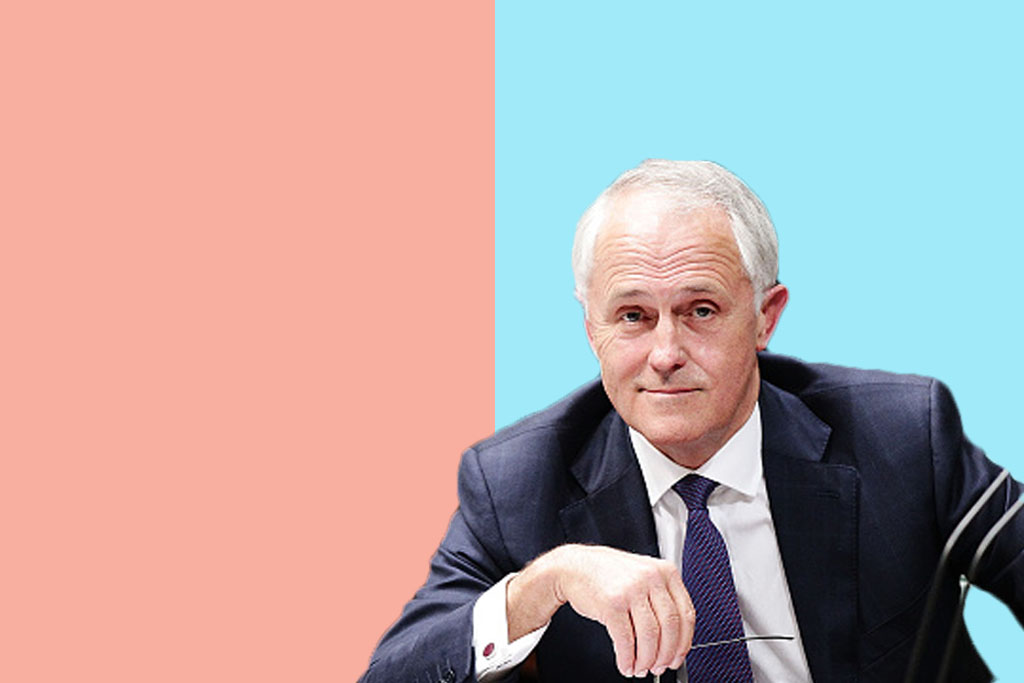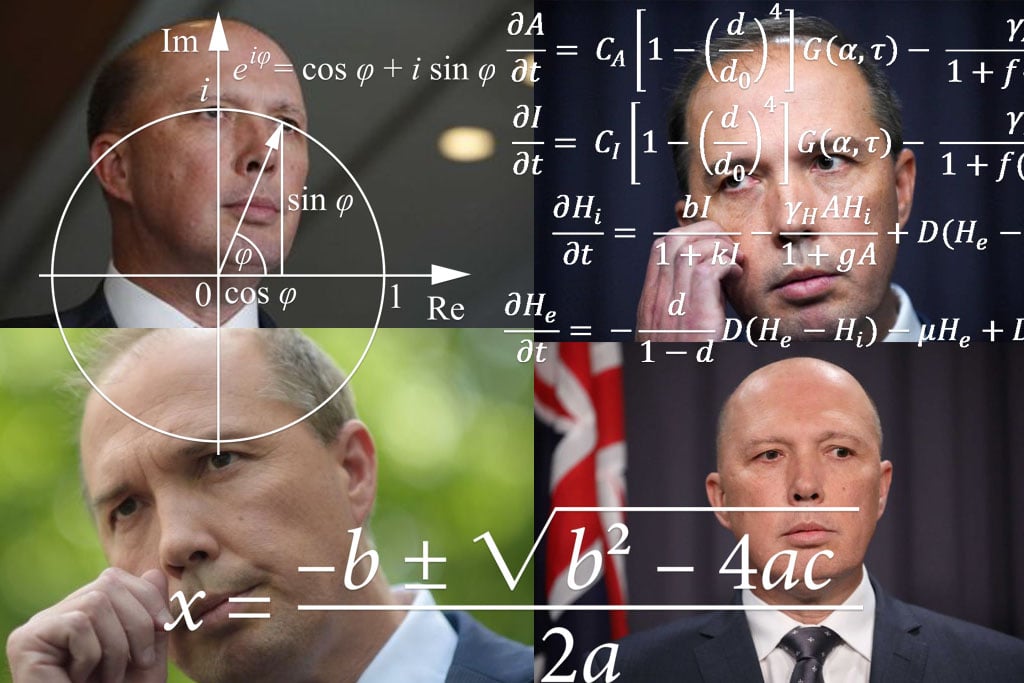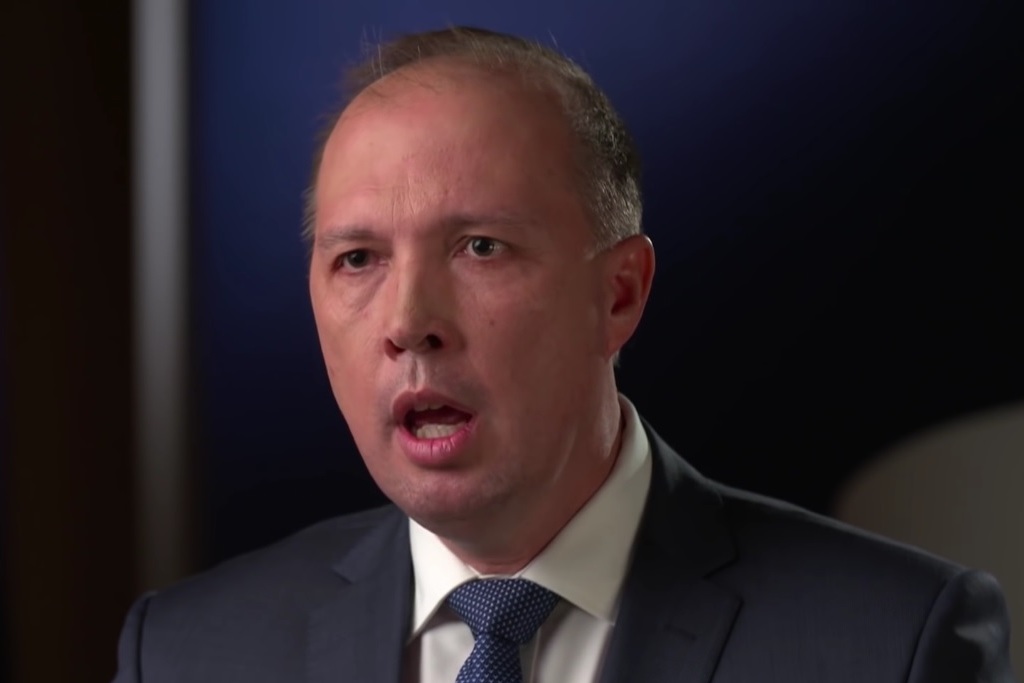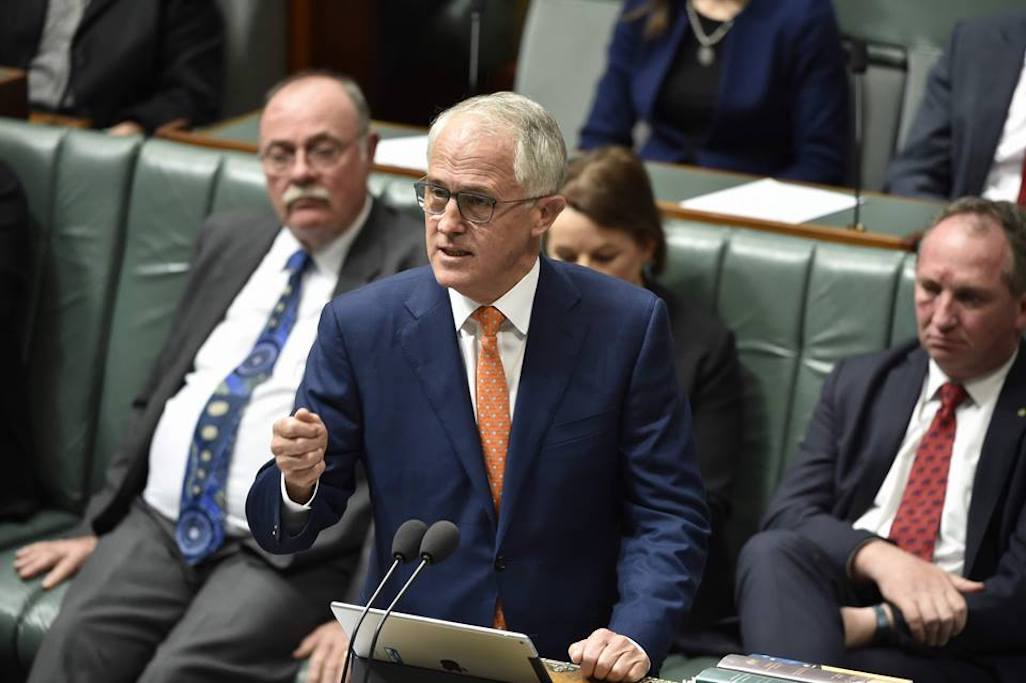What Was The Point Of Malcolm Turnbull?
Malcolm Turnbull will be defined by his failures.

If there’s a single consistent line running through the political career of Malcolm Turnbull, it’s his unfailingly poor judgement.
We saw it in the Utegate affair that crippled his leadership the first time around, and in the climate change debate that finished it off.
It could be argued that his entire career is the result of an episode of poor judgement — his decision to join the Liberal Party, rather than Labor, where his brand of soft-touch social progressivism and economic conservatism would have been more at home in the NSW Right.
But it’s that decision in 2009 to seemingly blow up his own career on a matter of principle that has come, more than any other moment, to represent the idea of Malcolm Turnbull.
There he stood, boldly declaring that he wouldn’t lead a party that wasn’t as committed to action on climate change as he was — and he didn’t. The party turfed him out in favour of Tony Abbott, and Turnbull moved to the backbench where (after a brief hissy fit in which he tried to resign from Parliament) he set about reinventing himself.
Malcolm 5.0 (The first Malcolms were: Hot-Shot Barrister, Republic Crusader, Investment Banker/Rich Dude, and Failed Opposition Leader) was Cool Malcolm. Wearing a leather jacket, he was at ease on the set of Q&A or at a writers’ festival, where inner-city progressive types could lavish him with praise.
“If only Malcolm were in charge,” they said. “He’s the sort of Liberal I could vote for.”
You could almost see Turnbull, sitting backwards on a chair, explaining why he wasn’t like those other Liberals. He was a cool Liberal.
For the next few years, Turnbull crafted a new public persona. He latched onto to a few totemic issues — namely climate change and gay rights — on which to build his brand. As the opposition spokesperson for communications, he assured us we could have our NBN cake and eat it too. Super fast, super cheap internet? No worries. Malcolm invented the internet, after all.
“Looking back, it’s hard to see anything other than the slow abandonment of the principles he built his public persona on.”
As the Rudd-Gillard governments self-immolated and Tony Abbott destroyed everything in sight, including, ultimately, his own government, Turnbull shot to the top of just about everyone’s preferred Prime Minister polls.
He was a chameleon — all things to all people: climate change warrior, equality believer, and economically dry technocrat. He was the grown-up in a room full of children.
As the Abbott government imploded, it seemed like only a matter of time until Turnbull took his rightful place on the throne.
Remember that brief, shining period after Tony Abbott was finally rolled? It was like the nation took a collective, deep breath. Finally an adult was back in charge. There’d be no more knighthoods, no more “sex appeal”. No more onions.
But we quickly learned that the new Malcolm (6.0: Prime Minister Malcolm) came with a few strings, and those strings were controlled by the far-right of the Liberal Party.
In order to take the job he’d always felt he was destined for, Turnbull had to enter into a faustian pact with the conservative wing of his party. Sure, they’d let Malcolm save the party from electoral oblivion, but he had to do things their way.
There’d be no marriage equality without a national vote, and no change to Abbott’s climate change policies. That was the only way conservatives would allow an outsider like Turnbull to control their party.
He couldn’t have agreed faster. What were a few principles if they stood in the way of your destiny?
Immediately, the poor judgement returned. Instead of capitalising on his enormous popularity and running straight to an election, Turnbull decided he wanted to govern for a while. When he finally did call an election, his popularity had been all but wiped out. After a torturously long campaign about nothing (another bad call), Turnbull’s government was reduced to a one seat majority.
Probably the truest display of Malcolm Turnbull was the one we saw on election night 2016. Petulant. Angry. A sook. Perhaps he knew what was to come. Without an influx of grateful first term MPs and marginal-seat holders to buttress his leadership, Turnbull was now entirely beholden to the conservatives.
His Prime Ministership died that night, and we’ve been watching the sad death throes ever since.
What Was The Point Of Malcolm Turnbull?
As Turnbull leaves office, talk will inevitably turn to his legacy. What did he achieve? What will people talk about in years to come? Looking back, it’s hard to see anything other than the slow abandonment of the principles he built his public persona on.
In his farewell address this afternoon, he named some minor achievements: Roads that are yet to be built, a Snowy Hydro that hasn’t begun, changes to childcare funding and a dedication to cities. But they’ll pale into insignificance compared to his failures.
“He put us through hell to save himself, and in the end it counted for nothing.”
Turnbull was once the star of the republican movement, but in office it barely rated a mention. When he did dare to talk about it, the conservatives were quickly there to tug on his leash and put him back in his box.
The NBN is a mess. Expensive, slow and broken, Australia’s internet speeds are an international punchline.
Turnbull cemented Labor’s Gonski education funding into law, but a backflip to appease the catholic education sector is surely just around the corner under a Morrison government.
His shameful, callous rejection of the Uluru Statement From The Heart will stain his legacy for generations.
And climate change? If it’s true that Turnbull wouldn’t lead a party that was as committed to action on climate change as he was, as he said in 2009, then it’s safe to assume Malcolm Turnbull doesn’t really care about climate change all that much.
The last three years have been a slow drift from inaction to outright climate vandalism. He backed the Adani mine despite knowing the damage it would do to the Great Barrier Reef. His enthusiastic support for renewable energy all but disappeared.
The final humiliation came just last week. As his leadership was sinking, Turnbull quickly threw his last meaningful piece of climate action — the Paris targets — overboard in a last ditch attempt to keep himself afloat.
The one principle Turnbull clung onto was tax cuts for big business. It’s hardly a policy they’ll build monuments to in years to come, but even that was dropped in the dying days of his leadership.
Perhaps Turnbull will try to do as David Cameron has done in the UK and claim marriage equality as his greatest legacy, but the queer community who suffered through his monstrous process will never forgive him. The end didn’t justify the means.
The victory in last year’s postal survey will always be seen as a victory of our community over a government that threw every possible obstacle in its way — and that government was led by Malcolm Bligh Turnbull.
And what was the point of it all? Turnbull gave the conservatives what they wanted on climate change, but the National Energy Guarantee debacle ultimately destroyed his leadership. The plebiscite on marriage equality was a policy created by Tony Abbott, demanded by the hard-right, constructed by Peter Dutton, and delivered faithfully by Turnbull. But in her scathing resignation letter this week, conservative Senator Concetta Fierravanti-Wells cited the same-sex marriage debate as one of the key reasons conservatives had abandoned Turnbull.
Turnbull’s other sop to conservatives on marriage, the Ruddock review into religious freedom, now sits like a time bomb in the Prime Minister’s office, ready to wind back the progress we’ve made in the last 12 months.
He put us through hell to save himself, and in the end it counted for nothing.
Perhaps the greatest impact of Turnbull’s tenure as PM will be on the party he led, which now lies in ruins. History is replete with premature predictions of the deaths of political parties, but the Liberal Party has never been as divided as it is right now.
Will Turnbull’s portrait ever go up in the Liberal party room? There might not even be a wall to hang it on.
In the end, Turnbull’s most enduring legacy may be his own portrait in the National Gallery. Perhaps that’s all he ever really believed in.
Rob Stott is the Managing Editor of Junkee Media. Follow him on Twitter @Rob_Stott.


